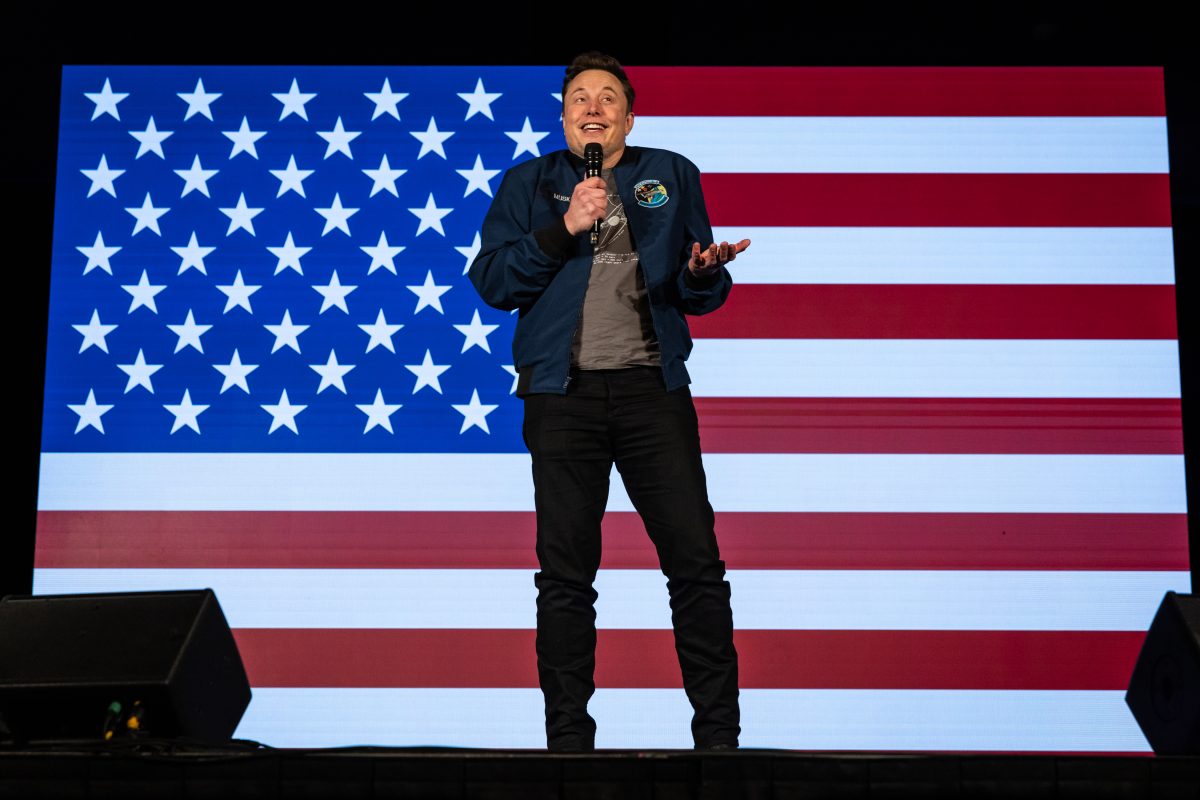Trends
From 14 States Suing DOGE To Musk’s Agenda Of Deleting Entire Federal Agencies—DOGE Has Emerged Un-Able To DOGE Drama!
Musk helms the Department of Government Efficiency, or DOGE, a White House team tasked with cutting federal spending.
Musk helms the Department of Government Efficiency, or DOGE, a White House team tasked with cutting federal spending.
Published
12 months agoon

Elon Musk is not only a billionaire but is also a ‘special government employee.’ When Donald Trump took office for his second term, he moved quickly to bring his political adviser and top campaign donor into the government.
Musk now helms the Department of Government Efficiency, or DOGE, a White House team tasked with cutting federal spending. The unit has terminated a slew of government grants and contracts, according to its X account, and disrupted the work at agencies including the U.S. Agency for International Development and the Consumer Financial Protection Bureau, where workers have also recently been put on leave or lost their jobs.
Before we get into all of the Musk and DOGE controversies, let’s first break down what it means to be a “special government employee.”
What Is a “Special Government Employee”?
Musk is what’s known as a “special government employee” or SGE, a designation given to individuals who join the government for a short period, typically to provide specialized expertise.
In 1962, Congress created the role of SGE, allowing the executive branch, legislative branch, and independent federal agencies to bring on temporary employees for specific roles. Typically, SGEs are hired as experts, consultants, or members of federal advisory committees—of which there are roughly 1,000 across the U.S. government.
One reason government officials favor SGEs is that it’s less burdensome than hiring regular federal employees, according to Joanna Friedman, a partner with the Federal Practice Group, a Washington, D.C., law firm specializing in federal employment law.
As Friedman put it – If you’re hired as a federal employee, you have to go through the competitive selection process, which means you must apply for a job and be selected as the best-qualified candidate. This is just an easier way to bring someone on board without as much red tape.
The Trump administration has also designated other members of Musk’s DOGE team as SGEs.

Courting One Controversy After Another
Lawsuits
Elon Musk and President Donald Trump are now facing a legal firestorm, with 14 states taking them to court over the controversial Department of Government Efficiency (DOGE). The lawsuit, spearheaded by Democratic attorneys general from states like Arizona, Michigan, and Rhode Island, argues that DOGE’s unchecked authority is outright unconstitutional.
Arizona Attorney General Kris Mayes didn’t mince words as he stated that – The founders of this country would be outraged that, 250 years after our nation overthrew a king, the people of this country—many of whom have fought and died to protect our freedoms—are now subject to the whims of a single unelected billionaire.
The crux of the lawsuit?
The claim that Trump overstepped his power by creating DOGE without congressional approval and handing Musk near-dictatorial control without Senate confirmation.
“President Trump has delegated virtually unchecked authority to Mr. Musk without proper legal authorization from Congress and without meaningful supervision of his activities,” reads the lawsuit. Essentially, they’re saying that what should have been a small advisory role has ballooned into an unchecked force of chaos.
Not surprisingly, the White House is brushing off the lawsuit. Press secretary Karoline Leavitt dismissed it as yet another “weaponization of justice against President Trump.”
But the lawsuits keep piling up. On the same day, a group of government employees sued to block DOGE from accessing sensitive Treasury Department data and removing federal workers, arguing Musk was improperly appointed. And last week, New York Attorney General Letitia James, along with 18 other state attorneys general, won a temporary court order stopping DOGE from digging into personal financial information.
Another federal judge also stepped in, pausing an effort by the Trump administration to slash funding for federal research agencies, a move that would have impacted everything from equipment maintenance to scientific support staff.
Despite all this legal heat, Trump remains unfazed, standing by Musk and DOGE. He insists that their mission to shrink the government is essential and blames the courts for throwing up roadblocks. “We have to make our government smaller, more efficient, more effective, and a lot less expensive,” Trump told reporters. “We could find a trillion dollars in savings, but we’re being hindered by courts where they file in certain courts where it’s very hard to win and a judge will stop us.”
However, with multiple lawsuits in play, it’s clear that DOGE isn’t just about efficiency anymore—it’s become a full-blown political and legal battleground.

Musk’s Equally Controversial Response
For Elon Musk, he isn’t just trimming government fat—he’s on a mission to delete entire agencies. Speaking at the 2025 World Governments Summit in Dubai, Musk made it clear that his push for government efficiency isn’t just about cutting budgets—it’s about wiping out what he sees as unnecessary bureaucratic structures altogether.
Musk stated, “I think we do need to delete entire agencies as opposed to leaving parts of them behind. It’s like a weed. If you don’t remove the roots, it’ll grow right back. But if you pull it out completely, at least it’s harder to return.”
Musk admitted that some of these agencies might be revived in the future, but he argued that by slashing them now, any future administration would be starting “from a much lower baseline.” His long-term goal? A government that’s leaner, less expensive, and built for efficiency—one that, in his words, could “lay the foundation for prosperity that will last decades, maybe centuries.”
Mass Layoffs Across U.S. Government
Musk’s vision is already in motion, and the impact is seismic. Thousands of federal workers received termination emails over the past 48 hours as Trump and Musk ramp up what critics are calling a full-blown purge of the federal workforce.
Trump, for his part, is fully backing the effort, defending the cuts as necessary to curb government bloat and tackle the country’s $36 trillion debt. “We’re losing too much money to waste and fraud,” he said. “It’s time to make our government smaller, more efficient, and more effective.”


Taiwan’s ‘Historic’ TSMC Deal, A Win Or The End Of Its ‘Silicon Shield’ As China Threatens? A Jittery Taiwan Watches Trump’s Moves On Ukraine, Wondering, Could We Be Next?


America And China’s Thirst For Gold In 2025 Is Draining Other Countries’ Reserves; Here’s Why?


Germany’s Friedrich Merz’s Big Balancing Act—Trump, Borders & Europe’s Future. Can He Deliver?


United Kingdom To Unleash Its ‘Harshest’ Sanctions On Russia Yet—But Will They Bite? How Trouble Is Brewing For Keir Starmer At Home. Shamed For Volunteering British Troops In Ukraine


How It’s Not Trump But Vladimir Putin That Europe Is Stinging From: Trump’s U-Turn On Europe, Russia’s Strong Supply Chain—A Formidable Opponent!


Is Ukraine Now Stuck In The US-Russia Ecosystem? Could Zelensky Have Made A Deal To Stop The War, Is Trump Right?
